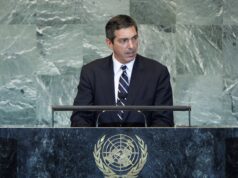ATHENS – [ANA-MPA]
Low wages, the high cost of living, and Greece’s worsening housing crisis are the main barriers deterring the return of Greeks who left during the financial crisis, as well as preventing efforts to stem the ongoing brain drain, main opposition PASOK–Movement for Change leader Nikos Androulakis said on Tuesday.
Speaking at the “Brain Regain & Retain Forum” organised by in.gr, Androulakis emphasised the urgent need to reverse the process, highlighting the daily challenges young people face.
“We live in a country with low wages and a constantly rising cost of living — housing, food, transportation — everything a young person needs to start life. While unemployment has improved, wages remain very low, especially for young scientists just entering the job market,” he said.
Androulakis questioned whether Greece currently offers an attractive environment for researchers to stay and work: “What has really improved for a young researcher? Is there a compelling research ecosystem that would make them stay? No,” he stated.
As a strategic goal, he proposed transforming Greece into a hub for innovation and research, with a high quality of life and strong democratic values: “So that young people feel they can build a future here.”
He also put forward PASOK’s proposal for an “angel visa” programme, contrasting it with the ruling New Democracy party’s reliance on the Golden Visa scheme.
“New Democracy invested heavily in the Golden Visa. But property should not an area where we invest exclusively for our economic openness—it has had overwhelming side effects on our society,” Androulakis said, noting that half of all foreign direct investment in Greece was in real estate. “This is not a resilient economic model.”
Instead, he advocated for the “angel visa,” which would require foreign investors to support research, innovation, or Greek startups—particularly small and medium-sized enterprises—as a condition for residency.
Asked how long it will take for policies designed to ameliorate the high cost of living to take effect, the main opposition leader pointed out that a start has to be made. “Four years ago I presented a housing policy programme along the same lines as Portugal. If they had started it four years ago, would rents have reached the height they are today? I was subjected to the prime minister’s complete ridicule and I am now reading in a Sunday newspaper that he is contemplating the implementation of a social housing programme,” he said.
“Everything is about momentum. If we come to power, we will implement a social democratic programme that will restore European normality in Greece,” Androulakis added, criticising the current government’s approach to housing policy.
He accused New Democracy of treating the state as “spoils of war” and governing as if the state were its property, while “weaponising” bureaucracy and corruption to stay in power. “If this doesn’t change, nothing will change…if we don’t address this central problem, we are not addressing anything,” he added, citing the case of the CAP aid schemes payment authority, OPEKEPE, as an example.
PASOK’s leader emphasised the importance of engaging Greece’s younger generation, particularly those with international experience, noting that they were “aware of the quality of democracy” and that the toxicity in political discourse, party behavior, and social media “undermines their willingness to participate.”
“We want them involved. Their perspective is valuable—they bring experiences from abroad. We must find ways to integrate them into political life,” Androulakis added.
Addressing the long-debated issue of constitutional reform, Androulakis reaffirmed PASOK’s support for amending Article 16 to allow the establishment of non-state, non-profit universities in Greece but said that the universities established should be of high standard, not glorified colleges.
While expressing support for constitutional change in principle, he criticised what he called “political acrobatics” by Digital Governance Minister Kyriakos Pierrakakis and said the reform must lead to “properly structured, well-funded, non-profit institutions—similar to those in other countries,” which promote academic excellence and support the public universities.





